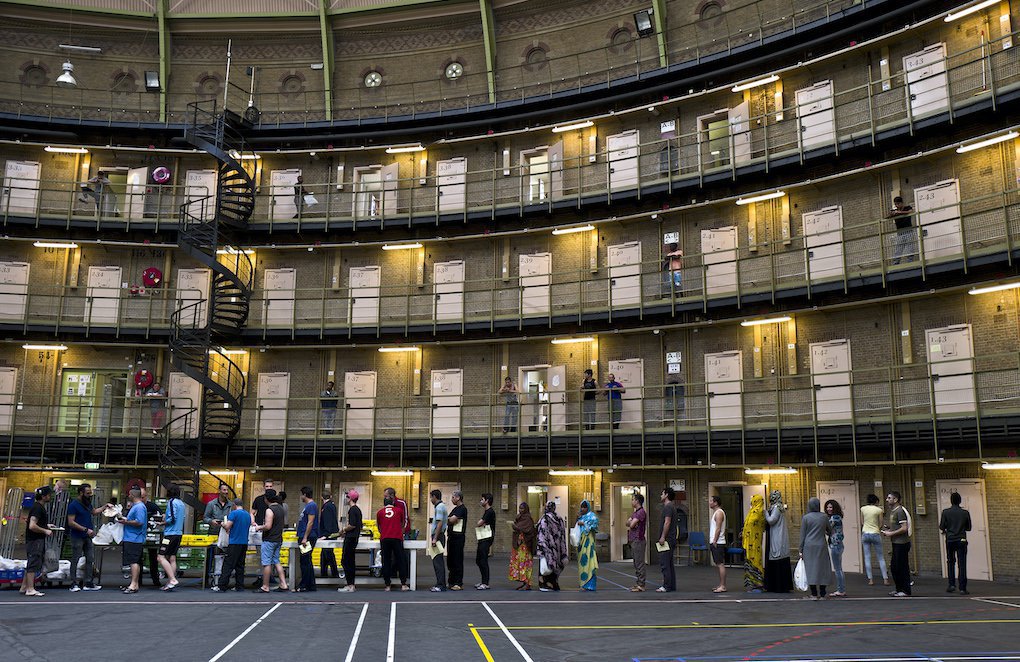* The prison where refugees were sheltered during 2016 refugee influx / Muhammed Muheysen
Click to read the article in Turkish
The Statistics Netherlands (CBS) has announced that since the 'refugee crisis' in 2015, the highest increase in the number of applications for asylum to the country was encountered last year, in 2021.
The number of applications submitted by the citizens of Turkey has also been increasing, according to the statistics shared by the CBS yesterday (January 31). Last year, 2,460 citizens of Turkey applied for asylum to the Netherlands, the institution has announced.

Turkey ranks third in asylum applications
The CBS has shared the following information:
"In 2021, nearly 25,000 people submitted a first application for asylum in the Netherlands. This is 80 percent more than in the previous year.
"The number of applications was higher during the last 2 quarters in particular. As in previous years, people with Syrian nationality formed the largest group of asylum seekers in 2021, accounting for almost 34 percent (8,380) of the total. This is more than double the number one year previously.
"Afghan (3,005) and Turkish (2,460) nationals constituted the next largest groups in 2021, after Syrians.
"The number of first requests by Afghan applicants rose by 2,615, nearly 8 times as many as in the previous year. Eighty-eight percent of applications by Afghan nationals took place in the last two quarters of 2021. The increase was partly related to the evacuation flights from Afghanistan."
Wide range of people apply from Turkey
According to the Dutch Council for Refugees, after the failed coup attempt in Turkey on July 15, 2016, most applications for asylum from Turkey to the Netherlands came from those affiliated with the Gülen community, which was held accountable for the coup attempt in the country.
As reported by Deutsche Welle (DW), the range of the applicants for asylum from Turkey has been extending over the years: Kurds, dissidents, journalists, human rights defenders and unionists leave Turkey amid investigations and prosecutions targeting dissidents.
The citizens of the following countries make the highest number of asylum applications to the Netherlands: Syria, Turkey, Iran, Eritrea. Algeria, Yemen, Morocco, Iraq, Moldova, Nigeria and Albania.
Violations against asylum seekers
On the other hand, researchers from the Radboud University in Nijmegen have found that the strict interpretation of the asylum rules by the Immigration and Naturalization Service (IND) leads to unfair treatment of migrants, refugees and asylum seekers in the Netherlands.
The Netherlands Institute for Social Research (SCP), an institution offering socio-cultural policy recommendations based on scientific research, is also of the opinion that long waiting periods for asylum seekers reduce their chances of fast integration into society.
A study carried out by eight researchers from the Radboud University has also found that applications for family reunification are systematically rejected in the Netherlands. Researchers have reported that the migrant profiling system that has been in use in the country causes people to accuse the government of defrauding with unnecessary payments.
The targeted people were generally the members of the ethnically diverse families or the ones with double citizenship.
Researchers have also found that the laws passed by the Parliament in recent years have led the legal status of migrants and refugees to be ambiguous; for instance, during their first meetings at the IND, they are now deprived of their right to free legal assistance. (AEK/SD)





